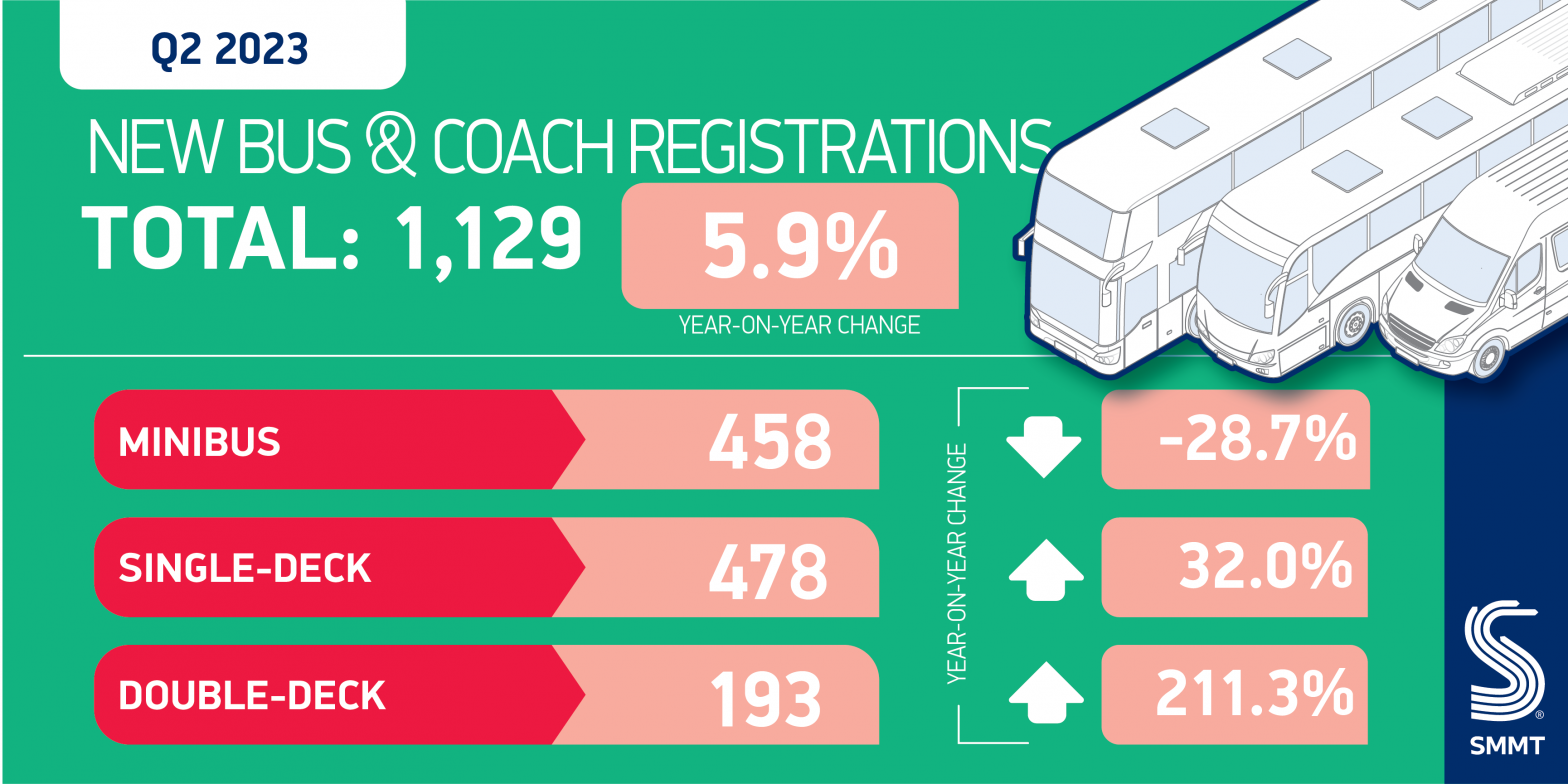- UK new bus, coach and minibus market up 5.9% in Q2 2023, as 1,129 vehicles join Britain’s road transport network.
- Growth driven by surge in demand for double and single deckers, up 211.3% and 32.0% respectively, while demand for minibuses falls by -28.7%.
- Support such as the Bus Fare Cap Grant helps sector to stabilise but long-term strategy and streamlined ZEBRA scheme urgently needed.
SEE BUS & COACH REGISTRATIONS BY BRAND
DOWNLOAD PRESS RELEASE AND DATA TABLE

Britain’s new bus, coach and minibus market grew by 5.9% in the second quarter of 2023 with 1,129 vehicles registered, according to the latest figures published today by the Society of Motor Manufacturers and Traders (SMMT). The performance represents the first quarterly rise in demand since Q2 last year and the best Q2 volume since 2019, amid stabilising ridership levels following a period of sharp decline during the Covid pandemic.1 Registrations remain some -21.2% below those in Q2 2019, however, highlighting the scale of the challenge to get the UK’s bus, coach and minibus services back on the road to recovery.2

Growth was driven primarily by deliveries of double and single deckers, up by 211.3% to 193 units and 32.0% to 478 units respectively. Conversely, registrations of minibuses fell for the fifth quarter in a row, by -28.7% to 458 units, as supply disruptions hamper the sector despite strong order books. In the year to date, the overall market has risen by 2.8% to 2,097 units – the best first-half performance since the pandemic began, albeit still -20.7% below 2019 levels.3

Passenger numbers began to increase following the pandemic and short-term measures such as extending the Bus Fare Cap Grant will help to maintain that trend, which will be critical for operators to ensure services are accessible and affordable. A long-term strategy, however, is needed to boost operator confidence to invest in fleet renewal, particularly with electric and hydrogen models given the sector’s importance to UK decarbonisation. The Zero Emission Bus Regional Area (ZEBRA) fund has provided grants to 17 regions for the latest, greenest vehicles, but a further 48 regions are yet to access the fund. Urgent action is necessary to make the application process smoother and more timely so that all stakeholders are able to deliver their green ambitions.

Mike Hawes, SMMT Chief Executive, said,
A rise in bus and coach fleet renewal driven by demand for single and double deckers indicates that the sector is stabilising – but operators continue to face highly challenging conditions, hampering sustained growth. The industry needs a long-term government strategy to deliver growth and decarbonisation, boosting uptake and underpinned by a more streamlined ZEBRA funding process. With the right support, this critical sector can continue to deliver affordable, accessible and sustainable mass mobility across the UK, while driving improvements to air quality in our towns and cities.
Notes to Editors
1 Q2 2022: 1,066 units
2 Q2 2019: 1,433 units
3 H1 2019: 2,645 units
